Traveling with pets can be a challenge, especially when flying from Dubai. Many airlines have strict no-pet policies, leaving pet owners searching for alternatives. This blog will guide you through non-pet-friendly airlines in Dubai, their restrictions, and how to navigate these policies for a stress-free journey.
Why Some Airlines in Dubai Are Not Pet-Friendly
Not all airlines welcome pets onboard, and understanding why is crucial for planning your trip.
- Why Some Airlines Do Not Allow Pets:
Airlines often restrict pets due to safety, hygiene, and regulatory concerns. Some aircraft are not equipped to handle animals, and certain destinations have strict quarantine laws. - Understanding Airline Policies:
Each airline has its own rules regarding pet travel. Some allow pets in the cabin, others only in cargo, and some ban them altogether.
Dubai Airlines That Completely Ban Pets
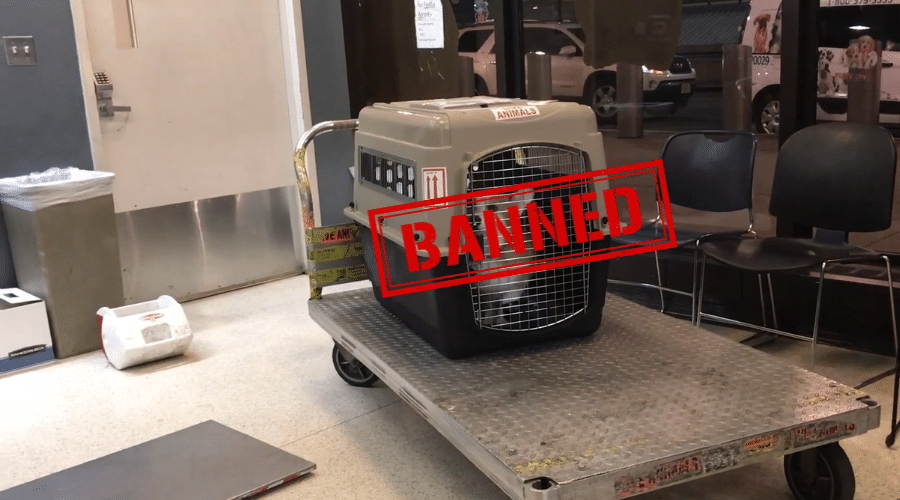
In Dubai, several airlines enforce a complete ban on pets, meaning they do not allow pets (including cats, dogs, and other animals) in the cabin or as cargo. Travelers in Dubai must be aware of these restrictions, as these airlines do not permit pets under any circumstances.
Airlines Included:
1. Wizz Air (Hungary):

Wizz Air, based in Hungary, does not allow dogs, cats, or any pets in the cabin or cargo, except for approved assistance dogs. Passengers traveling with pets on Wizz Air’s routes across Europe, the Middle East, and beyond should look into alternative airlines or pet transport services. Always verify the latest policy on Wizz Air’s official website before planning your trip.
2. EasyJet (UK):

- EasyJet, based in the United Kingdom, does not allow dogs, cats, or any pets in the cabin or cargo, except for approved registered assistance dogs. Passengers traveling with pets on EasyJet’s routes across Europe and the Middle East should look into alternative airlines or pet transport services. Always verify the latest policy on EasyJet’s official website before planning your trip.
3. Ryanair (Ireland):

- Ryanair, based in Ireland, does not allow dogs, cats, or any pets in the cabin or cargo, except for approved trained assistance dogs. Passengers traveling with pets on Ryanair’s routes across Europe and the Middle East should look into alternative airlines or pet transport services. Always verify the latest policy on Ryanair’s official website before planning your trip.
4. Air Arabia (UAE):

- Air Arabia, based in Sharjah, UAE, does not allow dogs, cats, or any pets in the cabin or cargo, except for approved service animals. Passengers traveling to/from Dubai or other UAE airports with pets should look into alternative airlines or pet transport services. Always verify the latest policy on Air Arabia’s official website before planning your trip.
5. IndiGo (India):

- IndiGo, based in India, does not allow dogs, cats, or any pets in the cabin or cargo, except for approved service dogs. Passengers traveling to/from Dubai or other UAE airports with pets should look into alternative airlines or pet transport services. Always verify the latest policy on IndiGo’s official website before planning your trip.
6. SpiceJet (India):

- SpiceJet, based in India, does not allow dogs, cats, or any pets in the cabin or cargo, except for approved service dogs. Passengers traveling to/from Dubai or other UAE airports with pets should look into alternative airlines or pet transport services. Always verify the latest policy on SpiceJet’s official website before planning your trip.
7. AirAsia (Malaysia):

- AirAsia, based in Malaysia, does not allow dogs, cats, or any pets in the cabin or cargo, except for approved service dogs. While AirAsia does not operate flights to Dubai or the UAE, passengers traveling with pets on other routes should look into alternative airlines or pet transport services. Always verify the latest policy on AirAsia’s official website before planning your trip.
8. Pegasus Airlines (Turkey):

- Pegasus Airlines, based in Turkey, does not allow dogs, cats, or any pets in the cabin or cargo, except for approved service dogs. Passengers traveling to/from Dubai or other UAE airports with pets should look into alternative airlines or pet transport services. Always verify the latest policy on Pegasus Airlines’ official website before planning your trip.
Airlines with Dog Restrictions in Dubai
Several airlines, both local (Dubai-based) and international, have strict policies for dog travel. Dogs are not allowed in the cabin and must travel as cargo. Additionally, certain breeds such as aggressive breeds (e.g., Pit Bulls) and brachycephalic breeds (e.g., Bulldogs, Pugs) are banned due to safety or health concerns.
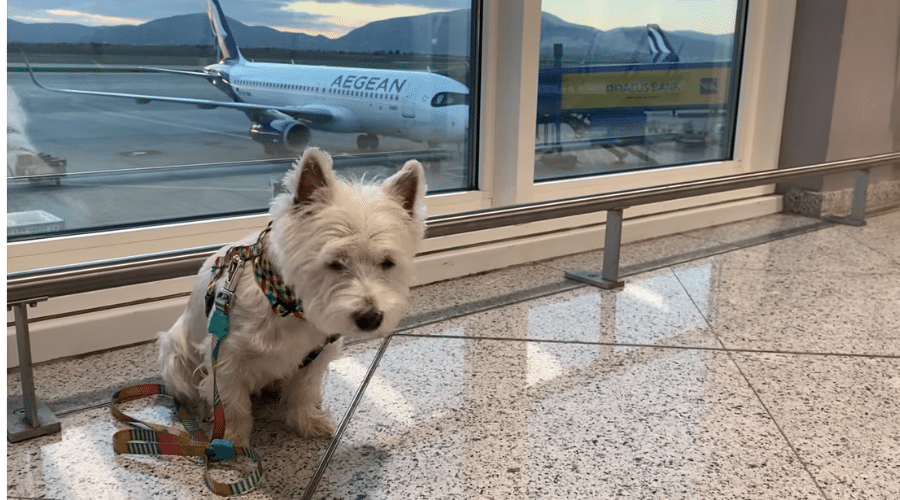
Local Airlines (Dubai-Based)
- Emirates Airlines
- Etihad Airways
- Qatar Airways
- Oman Air
- Gulf Air
- Flydubai
International Airlines
- British Airways
- Singapore Airlines
- Cathay Pacific
- Qantas Airways
- Virgin Atlantic
- Southwest Airlines
- JetBlue
- Spirit Airlines
- Frontier Airlines
Airlines with Cat Restrictions in Dubai
Many airlines, both local (Dubai-based) and international, have strict policies for cat travel. Cats are not allowed in the cabin and must travel as cargo. Also impose age restrictions (e.g., cats must be at least 12-15 weeks old) and require proper documentation (e.g., import permits, health certificates, and vaccinations).
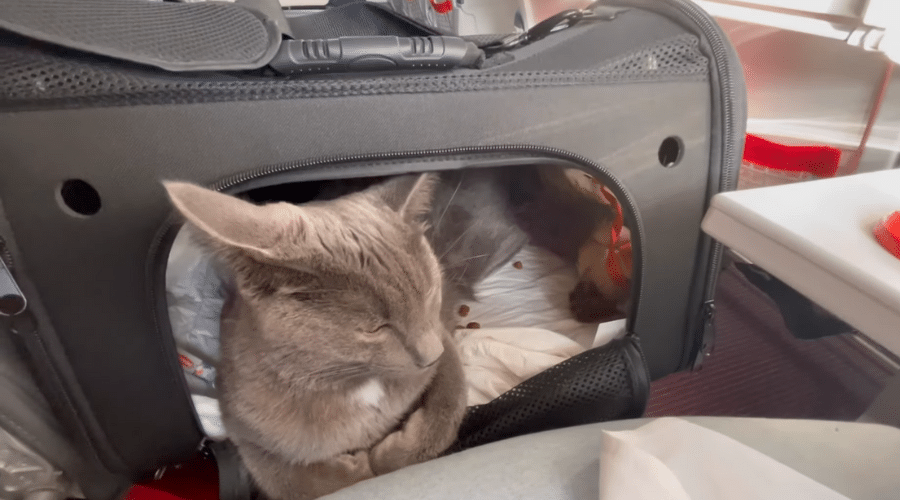
Local Airlines (Dubai-Based)
- Emirates Airlines
- Etihad Airways
- Qatar Airways
- Oman Air
- Gulf Air
International Airlines
- British Airways
- Singapore Airlines
- Cathay Pacific
- Qantas Airways
Why Airlines in Dubai Ban Pets
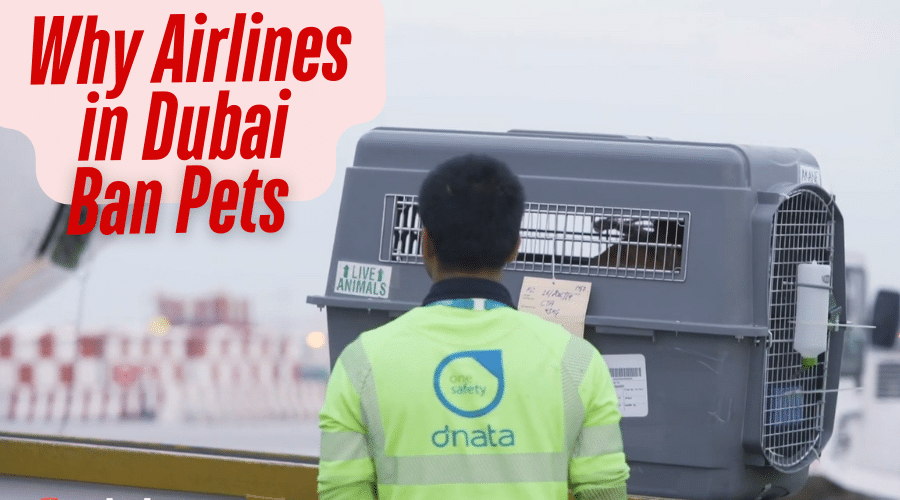
Airlines enforce strict pet policies to ensure the safety, comfort, and well-being of all passengers, crew, and animals. These policies are influenced by safety and hygiene concerns, legal and regulatory requirements, and the need to maintain operational efficiency. Below is a detailed breakdown of the reasons behind these policies and alternatives for pet-friendly travel.
1. Safety and Hygiene Concerns
Airlines prioritize safety and hygiene to protect passengers, crew, and pets.
- In-Cabin Risks: Pets in the cabin can cause allergies, discomfort, or even panic among passengers.
- Cargo Safety: Airlines ensure pets traveling as cargo are transported in temperature-controlled, pressurized environments.
- Hygiene: Pets can carry allergens, odors, or diseases, which may affect the cabin environment.
- Emergency Situations: Pets can become a distraction or hazard during emergencies.
2. Legal and Regulatory Reasons
Airlines must comply with international and local regulations governing pet travel.
- Import/Export Laws: Different countries have strict rules about pet entry, including quarantine requirements and vaccination mandates.
- Breed Restrictions: Some countries ban specific breeds (e.g., aggressive or brachycephalic breeds) due to safety or health concerns.
- Documentation: Airlines require health certificates, import permits, and vaccination records to comply with regulations.
- Liability: Airlines may face legal consequences if pets cause harm or if their policies violate local laws.
Alternatives for Pet-Friendly Airlines in Dubai
If your preferred airline has strict pet policies, consider these alternatives.
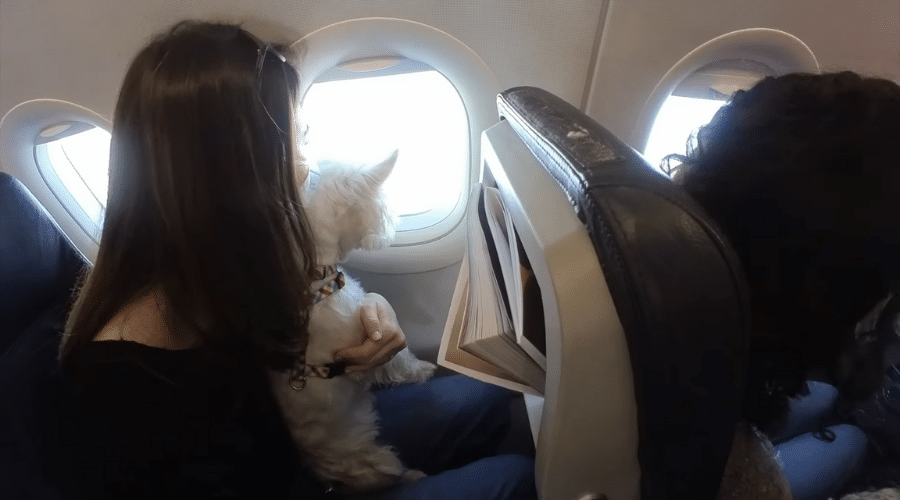
Pet-Friendly Airlines: Choose airlines that allow pets in the cabin or as cargo, such as:
- Lufthansa
- Turkish Airlines
- Air France
- Delta Airlines
- KLM Royal Dutch Airlines
Frequently Asked Questions
While many Dubai-based airlines have strict pet policies, some do allow pets under specific conditions. Here’s a breakdown:
Most airlines allow small dogs under 8 kg (17 lbs), including the carrier, to fly in the cabin. The carrier must fit under the seat, typically around 45 cm x 28 cm x 28 cm (18" x 11" x 11"), but sizes vary by airline
Required documents for pet travel from Dubai include:
- Health Certificate: Issued by a licensed vet.
- Vaccination Records: Including rabies and other required vaccines.
- Import/Export Permits: Depending on the destination.
- Microchip Details: For identification purposes.
Yes, most airlines require pets to be at least 12-15 weeks old to travel. Additionally, puppies and kittens must have completed their vaccinations, including rabies, at least 21 days before travel.






